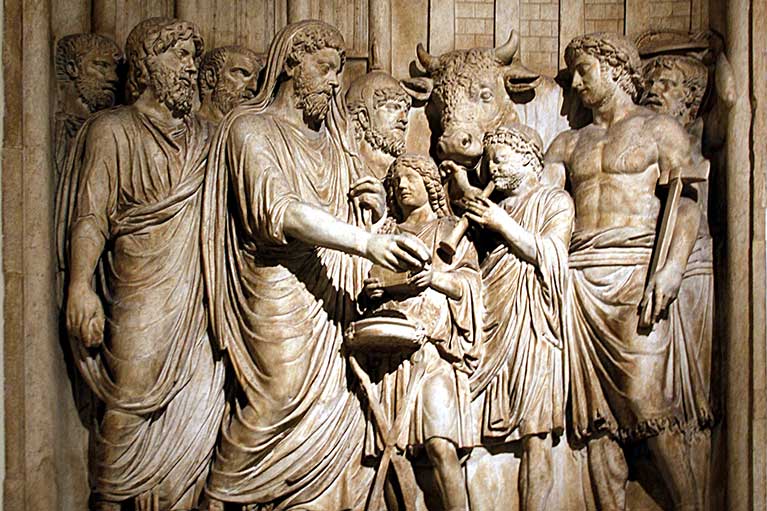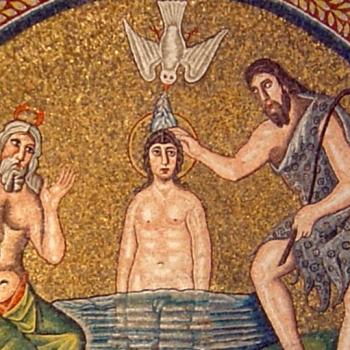
The amount of “good Christians” who have rattled their sabers in response to the NFL’s kneeling players during the National Anthem should not be surprising to anyone. Many of these same conservative (and of course largely white) Christians also voted for a man last November who epitomizes everything their Gospels speak against.
Indeed, in the wake of the Las Vegas shooting, Pat Robertson didn’t even try to veil his and his flock’s fetish for authoritarianism:
“Violence in the streets, ladies and gentlemen. Why is it happening? The fact that we have disrespect for authority; there is profound disrespect for our president, all across this nation they say terrible things about him. It’s in the news, it’s in other places. There is disrespect now for our national anthem, disrespect for our veterans, disrespect for the institutions of our government, disrespect for the court system. All the way up and down the line, disrespect.”
Robertson’s comments are ironic enough in light of how he spent much of the Obama administration. But seen through a longer lens of history, his and his ilk’s anger over citizens failing to display blind obeisance to a national leader, symbol, or ritual, and their demands for punishment, are ever more so.
Remember that these same white Christians have an immense persecution complex. They see any and every slight upon their faith as evidence of systematic oppression or proof positive that the Four Horsemen of the Apocalypse are galloping our way for the Second Coming. Yet they ignore the data-rich portrait of racism and actual oppression against people of color in our country, preferring instead to cling to the national myth of meritocracy, freedom, and Manifest Destiny.
Yet this persecution complex has historical roots. Though the targeting of Christians by Imperial Rome was not as widespread or systematic as Hollywood and modern Christian consciousness would have it, we have evidence that it did occur. And we know that when it did occur, it often happened because Christians refused to participate in religious sacrifices aimed at honoring the emperor. Even when the sacrifices or rituals that Christians opted out of were not specifically aimed at honoring the emperor, they were still part of a nexus of social, political, and religious practices that were inextricably intertwined.
That is to say, most Christians think that their ancient Roman counterparts were refusing to engage in these sacrifices in some sort of proto-demonstration of religious freedom, but in fact their refusal was seen as not really theological at all but entirely political.
As Mary Beard, John North, and Simon Price note in their authoritative and comprehensive volume on Religions of Rome:
It is true that sometimes in this context Christians were expected to sacrifice to the gods on behalf of the emperor, and sometimes directly to the gods and to the emperor. But the pressures exerted on Jews and Christians to conform were not motivated by theological concerns about the nature of divinity.
What was at stake for emperors, governors and members of civic elites was the whole web of social, political and hierarchical assumptions that bound imperial society together. Sacrifices and other religious rituals were concerned with defining and establishing relationships of power. Not to place oneself within the set of relationships between emperors, gods, elite and people was effectively to place oneself outside the mainstream of the whole world and the shared Roman understanding of humanity’s place within that world. Maintenance of the social order was seen by the Romans to be dependent on maintenance of this agreed set of symbolic structures, which assigned a role to people at all levels.
In other words, taking part in these exercises was in essence patriotic. It acknowledged one’s place within the Roman Empire through the participation in a highly symbolic ritual. When Christians refused to engage in said ritual, whatever complex theological or personal reasons they may have had to do so were rarely, if ever, entertained. Instead, people simply assumed they were against Rome, perhaps even enemies of it, and they suffered accordingly.
That is much the way most conservative white Christians are responding to the presidentially manufactured controversy over kneeling in the NFL. They have no time to step back from a ritual they take for granted, listen to those who are setting themselves apart, and think critically about what they have to say. No, instead they would rather throw them to the metaphorical lions — a truly historical betrayal of their forebears.
 About Don M. Burrows
About Don M. Burrows
Don M. Burrows is a former journalist and current college preparatory school teacher. Don holds a Ph.D. in Classical Studies with a Ph.D. minor in New Testament. A former Christian fundamentalist, Don is now a member of the United Church of Christ and can be found routinely advocating that the Bible cannot be read or explored without appreciating its ancient, historical context. Don lives in Minneapolis with his wife and three young children. Don blogs at Nota Bene and can also be found on Facebook.
We want to know what you think about the upcoming midterm elections. Vote in our poll below!












